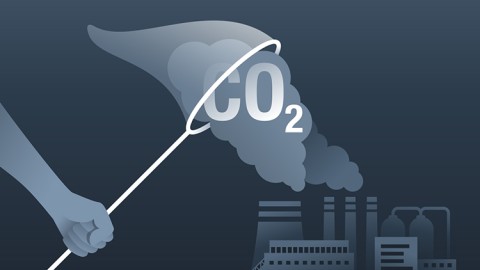Egypt’s vision of promoting itself as a regional energy trading hub is an initiative that is both inspirational and challenging, but no country with such an ambition can really establish its credentials in the global energy market without flexing the muscles of its own energy sector. Though rich with energy resources, most notably natural gas, Egypt’s role as a force within the energy market was not up to its full potential decades ago. But that reality is quickly changing with effective economic policies that have sought to boost production, not only to ensure that the needs of the local market are fully satisfied but to secure Egypt’s place in the global economy as an attractive source of energy supplies for export.
The government’s strategy relied on a number of different measures to ramp up production, most notably a substantial increase in exploration and production (E&P) activities. The government conducted a 3D seismic survey covering 329 square kilometers in the Mediterranean Sea at a cost of $35 million. This is in addition to future studies and surveys that are planned to be conducted in the Red Sea, with concessions in that region being put on the oil and gas exploration map for the first time.
Attracting international interest to the Egyptian market is a fundamental part of efforts to boost production, with one notable milestone being the launch of the Egyptian Upstream Gateway (EUG), which has successfully attracted up to ten international bid rounds, nine international bid rounds granted 39 oil and gas exploration with investments valued at $2.2 billion. Other reforms have ensured that the Egyptian energy market will be able to secure the necessary investments to finance more activities and attract more interest to all the promising assets that the country has to offer.
With a specific look at development throughout the past eight years, it is evident that the state’s reforms have brought about positive results with total petroleum production reaching 597 million tons, including 245 million tons of crude oil and condensates, 342 million tons natural gas, and 10 million tons of butane. The country also achieved its historically highest petroleum production rate in August 2019, reaching about 1.9 million barrels of oil equivalent per day (crude oil, gas, and condensates).
Notably, natural gas production has gone through the roof with the Zohr field producing up to 3.2 billion cubic feet per day (bcf/d), 1.1 bcf/d in Noroos, 0.35 bcf/d in Atoll, and 0.435 bcf/d in 9B Phase. Additionally, North Alex and West Delta’s production also contributed 5 trillion cubic feet of natural gas. In total, 48 natural gas field development projects have been added to the national production with investments of up to $33.4 billion.
With GDP representing one of the most important indicators of any economy, a general improvement in the contribution of the petroleum sector to the GDP can be witnessed throughout the decade (from fiscal year 2011/12 to 2020/21). Over a ten-year period, Egypt’s crude oil contribution to the GDP recorded an annual average of EGP 152.8 billion, with its growth rate soaring by 47%. In 2020/21, the country’s crude oil share in the GDP reached EGP 162.71 billion, whereas a decade ago in FY 2011/12 it was only EGP 110.62 billion. Between FYs 2011/12 and 2020/21, the contribution of crude oil in the GDP reached its highest point at EGP 242.75 billion during FY 2018/19. These trends coincide with the various measures taken by the Egyptian government to promote exploration activities and boost production, which have demonstrated significant success over the past decade.
When it comes to natural gas, it is also possible to observe the same trend with an increase in the contribution of natural gas to the GDP as the government carries out reforms to increase production. Between FYs 2011/12 and 2020/21, the annual average contribution of natural gas to the GDP was EGP 170.4 billion, where it reached its highest point at EGP 303.1 billion in FY 2018/19. Starting from EGP 145.04 billion in FY 2011/12, the contribution natural gas to the GDP ended up being 157.03 billion in 2020/21. In both the cases of natural gas and crude, FY 2018/19 stands out as the most productive year in terms of their role in boosting Egypt’s GDP. Performance was limited afterwards in 2020 due to the fallout of the global pandemic.
With specific focus on FY 2020/2021, crude oil contributed EGP 140.2 billion from the public sector, EGP 22.52 billion from the private sector, and hence EGP 162.7 billion from wholesale to the GDP. Natural gas contributions to the GDP included EGP 134 billion from the public sector, EGP 23.04 billion from the private sector, and hence EGP 157 billion from wholesale.
The financial impact of all these activities has been substantial, with the petroleum sector contributing to the State’s Public Treasury gaining up to EGP 77.4 billion in FY 2020/21. This represented a major breakthrough since back in FY 2016/17 there was a deficit of EGP 33 billion. It is also worth noting that the Egyptian petroleum sector has been a major source of investment attraction for the national economy with total investment costs over the past eight years amounting to EGP 1.2 trillion. As a result of the Ministry of Petroleum and Mineral Resources’ reforms and efforts to boost production, the sector’s exports increased to EGP 208 billion.
Promoting activities that contribute the country’s national income and the GDP is of utmost importance if the government’s economic reform program is to become effective in achieving the goals of building a self-sufficient, debt-free, and sustainable economy. With innovative minds exploring the endless possibilities of renewables and discoveries in the Red Sea region opening new opportunities to expand the energy market’s activities, the country is, for now, on the right course to achieving its goals in being a leading force in both energy production and climate action.








